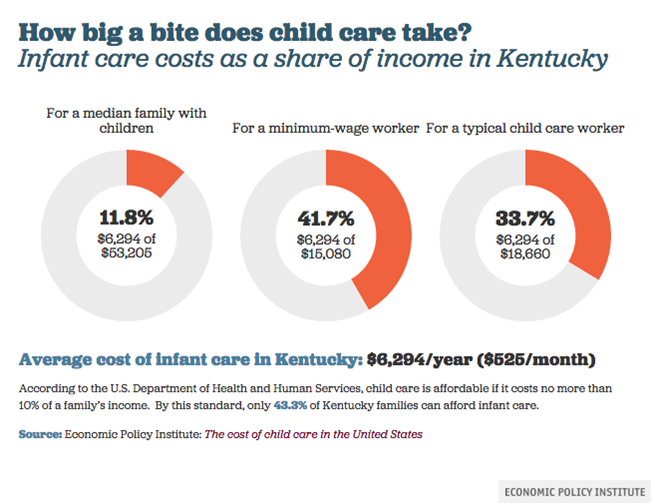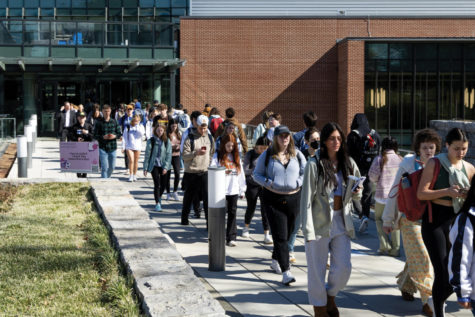Building to the future
April 27, 2016
With its colored blocks and nap time, early child care education can be one of the most formative times for a preschooler.
According to the Kentucky Center for Economic Policy, “children who have high quality early childhood experiences benefit immediately and well into adulthood, families with access to affordable care are able to invest in their income-earning potential and pursue careers, and states can more generally invest in a better prepared workforce.”
This means childcare falls on the parents, grandparents or extended families’ shoulders. In these situations, children have the potential to miss vital information and developmental skills.
Erika Chambers, director of Work-Life, said there are a variety of options available for UK employees and their families. Her office focuses on easing the stresses of working at the university and being a parent.
The Work-Life office helps employees access affordable childcare, partners them with students who offer occasional caregiving through Big Blue Family Care and provides resources for summer camps and days when parents may have to work but their children are not in school.
There are three child care centers on or adjacent to UK’s campus – The UK Early Childhood Laboratory, Woodland Early Learning Center at the UK and Child Development Center of the Bluegrass, but Chambers said many parents prefer childcare closer to home.
Chambers also said ECL, located in the seminary buildings on South Limestone, and Woodland have a waiting list for some of their classes.
Preparing children at an early age drastically changes their futures, but if childcare costs continue to soar the next generation will be without early education. The loss of vital education at a young age changes not just the individual’s future, but the future of Kentucky. Lexington and UK cannot afford to lose out on vital leaders because educating them was not a priority.
Space limitations and attempts to lessen the financial burden on employees, as well as providing resource services like the Work-Life office, are great ways to help.
“I think that UK is doing all that they can right now,” Chambers said. “There’s not necessarily the land opportunity for another childcare center.”
By providing UK families with more resources and better opportunities, rather than having their child’s education stalling on a waiting list, UK can create a positive influence for good, while also dramatically changing the community of future wildcats.
UK could provide employees a subsidy to lessen the cost, but that means more taxation.
“One of the challenges of providing subsidy to an employee specifically, is that it becomes income, and then it becomes taxable. So, there’s no free money,” Chambers said. “There’s not financial support … but there’s my office – the office of Work-Life – and I can help guide them to different childcare centers that may be an option for you.”
An average 10 percent or less of income goes to ECE, meaning that low income or minimum wage employees at UK would find paying for childcare a struggle. UK needs to make sure that minimum wage employees are aware of the resources provided and that equally affordable childcare is provided.
Email [email protected]




















































































































































